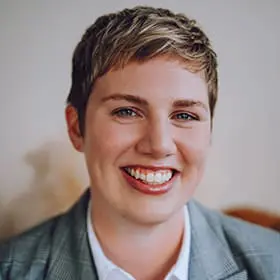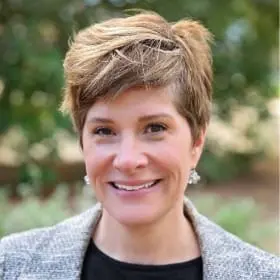
Insights
October 21, 2021
Embrace the Stages of Widowhood Toward Your New Life
In Wealth Strategy, Women and Wealth

When we suffer a loss in our life, we experience stages of grief, such as shock, anger, and eventually acceptance. Becoming a widow is a deeply emotional and stressful time for a woman, no matter whether she had time to prepare for her spouse’s death or her spouse passed suddenly.
In fact, women often experience widowhood in stages, something that I personally understand. I became a widow in 2014 after my husband lost his battle to cancer. While we each experience the stages of widowhood differently, we all want to feel financially secure both in our immediate needs and as we age.
Kathleen Rehl, herself a widow and former financial advisor, has outlined the three stages of widowhood in her book “Moving Forward on Your Own,” as grief, growth, and grace. Through her professional experience, she also covers in her book how a financial advisor can help widows through each stage. I find her stages, which transition from widowhood to an independent woman, to be accurate, having experienced them both as a widow and as an advisor working with widows.
THE 3 STAGES OF WIDOWHOOD
- Grief — As a new widow, you may still be in shock by the death of your spouse. If your spouse took care of money management and financial decisions for your household, you also may be worried about how you will live life day-to-day. In this stage, do not make any sudden decisions, especially irrevocable ones, about your finances. This advice applies to those who let the spouse handle the household finances and those who already managed the family finances. Now is the time for your financial advisor to listen and ensure your immediate needs are taken care of. Actions to take in this stage include filing for benefits, reviewing assets, and settling the estate.
- Growth — During this stage, you are more clearheaded and are ready to begin moving forward with your life. Now that you have settled your immediate needs that arose when you first became a widow, you are ready to focus on general estate planning needs, investments, taxes, and reviewing your retirement plan.
- Grace — Rehl also refers to this as the “transformation” stage, which is a great way to view it. In this stage, you embrace your new life. You may be ready to think about advanced estate planning needs, such as charitable giving or creating trusts, which can help minimize taxes and keep certain assets preserved. If you’ve met someone you want to marry, you may also need to create a prenuptial agreement during this stage.
When you become a widow, you may feel numb, be unable to think clearly, and have so many questions about your life now and your future. That’s why it’s essential to work with a financial advisor who is compassionate, listens, and can guide you through your transition to your new life. You need an advisor who is focused on your needs and wishes, not just tax breaks and portfolio performance.
KEY TAKEAWAYS
Please know that every person’s situation is unique and the time you spend in each stage will vary based on your experiences. Those who experience a sudden death by their spouse may take longer to move to the next stage, and that is OK. Working with an advisor who is trained in and understands major life transitions can help in your journey to independence.
Related Video
About the Author: Kim Rosenberg, CFP® is a Relationship Manager and Wealth Planner who takes a holistic approach to achieving her clients’ financial goals which integrates planning, investing, wealth management, tax implications, and estate planning. She uses her vast knowledge, personal experience, and deep empathy to help women take control of their money, and feel secure in their financial journey. She has helped women in all stages of life achieve their wealth goals, especially women facing major transitions like divorce or death of a spouse.
Certified Financial Planner Board of Standards Inc. owns the certification marks CFP®, Certified Financial Planner™ and federally registered CFP (with flame design) in the U.S., which it awards to individuals who successfully complete CFP Board’s initial and ongoing certification requirements.
Related Articles

June 27, 2025
Diversified Estate Planning for LGBTQ+ Families


June 24, 2025
Invest in Women: Well-Being at Any Age




June 20, 2025
Incorporating a “Die with Zero” Philosophy into Your Long-Term Financial Plan

